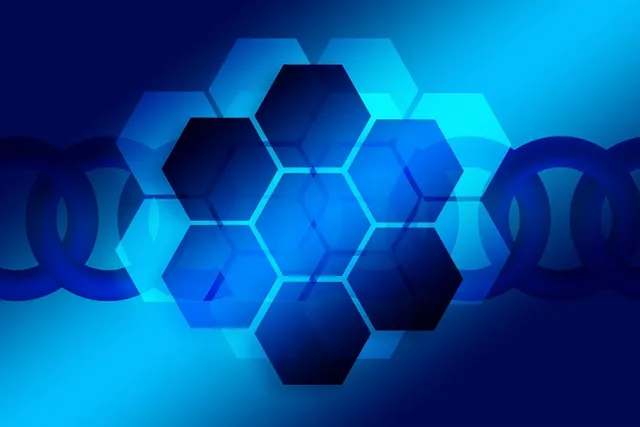The Evolution Of Decentralized Autonomous Organisation (DAOs)
INTRODUCTION
The DAOs are one of the major pillars of Web3, inheriting numerous governance models characterized by transparency and decentralization. While in traditional organizations work based on consensus, DAOs operate through smart contracts on the blockchain. With the growth of Web3, DAOs will gain many more features and be instrumental in running communities with enhanced efficiency, transparency, and security toward a more inclusive digital economy.
The first wave of DAO developments was born within the blockchain tech and governance models' innovation. The next innovations that will alter decision-making in DAOs are quadratic voting, decentralized identity audit, and automated treasury management. With these developments, DAOs ensure that their governance structures will remain fair and untainted through manipulation. The advancement of DAOs is truly a kind of trendsetter or pathfinder for digital collaboration and decentralized finance ecosystems.
Such boom in Web3 presents new frontiers for DAOs to explore in almost every industry. DAOs are changing how people engage with digital assets-from managing DeFi protocols to governing metaverse projects. The future development for DAOs will ensure that communities democratically control platforms, opening space for decentralized businesses, creative collaborations, and equitable economic systems in the digital economy.
- THE FUTURE OF WORK AND DAOs AS DIGITAL COOPERATIVES
DAOs are generating a new conception of work in a decentralized mode of employment. They, unlike any existing organization, allow employees to work on their own schedules and earn governance tokens. This introduces elements of transparency, flexibility, and collective ownership.
DAOs allow freelancers and remote workers to take up worldwide projects without the use of intermediaries. Smart contracts would ensure the fair remuneration of workers, reducing the former reliance on centralized platforms. Such mechanisms increase autonomy for workers and democratize financial compensation in digital cooperatives.
DAOs also open up new opportunities for professionals across industries. From software development to creative arts, digital labor cooperatives represent an all-inclusive and borderless model for employees. Such structures could conform to what would be taken as best practice for future decentralized work.
SCALABILITY CHALLENGES AND SOLUTIONS OF DAOs
As DAOs grow, the scalability becomes an important issue. In addition to all, there are high transaction fees and slow times for processing transactions. Developers try to find out about Layer 2 solutions and other consensus mechanisms so that the DAOs can use these for their operations without compromising general decentralization.
The other problem facing the DAOs is about blockchain interoperability. The cross-chain communication protocols link the DAOs with various networks crossing blockchains. These are expected to create better scalability of DAOs while making the latter more functional and adaptable to any blockchain ecosystem.
Automation through artificial intelligence will make DAOs more scalable. AI-powered governance systems simplify the way decisions are made and reduce human interference. These advances will allow DAOs to scale at the same time they continue running very efficiently for their indefinite future in a changing blockchain world.
- HYBRID DAOs: COMBINING THE TRADITIONAL AND THE DECENTRALIZED
Hybrid DAOs intermingle some form of centralized governance with decentralized decision-making, producing the possible balance and structure for operations. This allows the organization to remain compliant with regulations while using blockchain for its transparent and efficient operation in decentralized governance.
In an integrated hybrid approach, companies will merge DAOs with their corporate entities as a way of attracting institutional investors. This structure then allows organizations to gradually move toward a decentralized posture with minimized risks due to immediate regulatory concerns. It would now be more attractive for DAOs to be used by the mainstream and the larger organizations.
The hybrid DAOs facilitate better resource management through the use of traditional financial expense models and decentralized treasury control. Such a system guarantees balance for effective scaling of the DAO while assuring trust and every accessibility to a wider range of stakeholders.
- THE FUTURE OF DAOS IN GOVERNANCE AND GLOBAL DECISION-MAKING
DAOs enable much more transformative influence in this of global governance, providing ground to democratic decision-making processes with built-in transparency and community-centric protocols. The application of such decentralization can be in public policy, climate initiatives, and social impact schemes, with minimum corruption and maximum trust.
Inclusion in decentralized governance models gives people from all countries the ability to influence which policies apply to them. Speedy, transparent decision-making in DAOs would eradicate bureaucratic inefficiencies that could redefine any democratic configuration across the globe.
With advancing capabilities, blockchain technologies would be able to run every governmental role through DAOs. Smart contracts would take over the automatic enforcement of policies put in place so that governance is fair. With increasing adaptation, we might see DAOs taking a central stage in redefining the traditional governance setup.
CONCLUSION
DAOs are in constant evolution, affecting work structures, scalability, hybrid governance, and global decision-making. Like a decentralized committee, these entities represent enhanced transparency, efficiency, and inclusivity. As technology develops further, DAOs might transform industries, reshape governance, and then be laying the very foundation upon which a decentralized autonomous future crops up.
Thank you for visiting my blog ❤️
.jpg)
.jpg)

My promotions:
X shared: https://x.com/goodnewsuko02/status/1898448725082599658?s=46